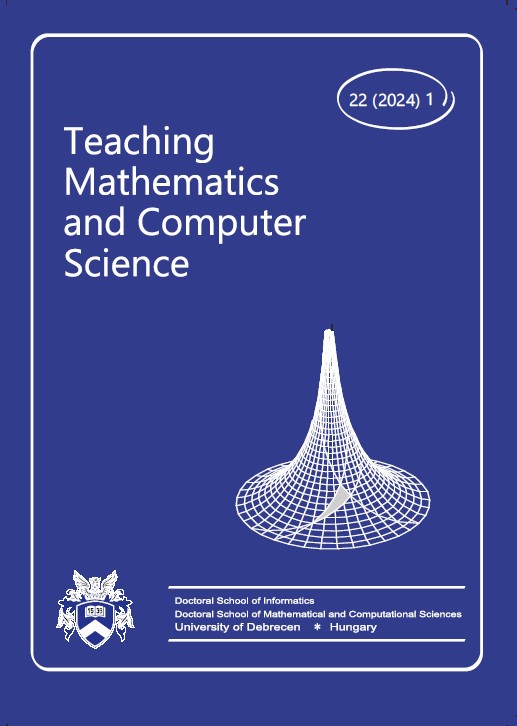Online tests in Comprehensive Exams – during and after the pandemic
Author
View
Keywords
License
Copyright (c) 2024 Adrienn Vámosiné Varga

This work is licensed under a Creative Commons Attribution 4.0 International License.
How To Cite
Abstract
The Covid-19 pandemic accelerated the development of electronic (e-learning) assessment methods and forced their use worldwide. Many instructors and students had to familiarize themselves with the form of distance education. During and since Covid-19 in Hungary, at the Faculty of Engineering of the University of Debrecen, the written part of the Comprehensive Exam in Mathematics is organized in a computer lab of the university using an online test. Our goal is that the results of the tests may be as reliable as possible in terms of measuring the students’ knowledge, and thus the grades given based on the test results would be realistic. In this paper, we show the analysis of a sample written exam and compare the real exam results of students who were prepared for the comprehensive exam during Covid-19 and who have participated in face-to-face education since then. The tools provided by the Moodle system necessary for comparison are also presented.
Subject Classification: 97D40, 97D70, 97U50
References
- Al-Qdah, M., & Ababneh, I. (2017). Comparing online and paper exams: Performances and perceptions of Saudi students. International Journal of Information and Education Technology, 7 (2), 106–109.
- Dobák, D. (2011). Az online vizsgáztatás pedagógiai jelentősége [Doctoral dissertation, Eötvös Loránd University]. ELTE Digital Institutional Repository. http://hdl.handle.net/10831/45029.
- Jiang, X., Goh, T.-T., Chen, X., Liu, M., & Yang, B. (2023). Investigating university students’ online proctoring acceptance during COVID-19: An extension of the technology acceptance model. Australasian Journal of Educational Technology, 39 (2), 47–64. https://doi.org/10.14742/ajet.8121
- Lim, J. R. N., Rosenthal, S., Sim, Y. J. M., Lim, Z.-Y., & Oh, K. R. (2021). Making online learning more satisfying: The effects of online-learning selfefficacy, social presence and content structure. Technology, Pedagogy and Education, 30 (4), 543–556. https://doi.org/10.1080/1475939X.2021.1934102
- Miao, R. (2017). Applied value of mathematical modeling thought in advanced mathematics teaching. In Proceedings of the 6th International Conference on Social Science, Education and Humanities Research (SSEHR 2017), Advances in Social Science, Education and Humanities Research, Volume 185 (pp. 164-167). Atlantis Press.
- Ocak, G., & Karaku¸s, G. (2021). Undergraduate students’ views of and difficulties in online exams during the COVID-19 pandemic. Themes in eLearning, 14, 13–30.
- Quiz report statistics. https://docs.moodle.org/dev/Quiz_report_statistics
- Shraım, K. (2019). Online examination practices in higher education institutions: Learners’ perspectives. Turkish Online Journal of Distance Education, 20 (4), Article 12, 185–196.
- Stankovic, J., Milovanovic, S., & Radovic, O. (2017). Applying the Moodle platform in online student self-assessment. Economic Themes, 55 (2), 281–304. doi: 10.1515/ethemes-2017-0016
- Vámosi, A. (2017). Tippek és trükkök Moodle számonkérés készítéséhez [Tips and tricks for creating a Moodle assessment]. International Journal of Engineering and Management Sciences (IJEMS), 2 (2), 123–131.

 https://doi.org/10.5485/TMCS.2024.13559
https://doi.org/10.5485/TMCS.2024.13559






